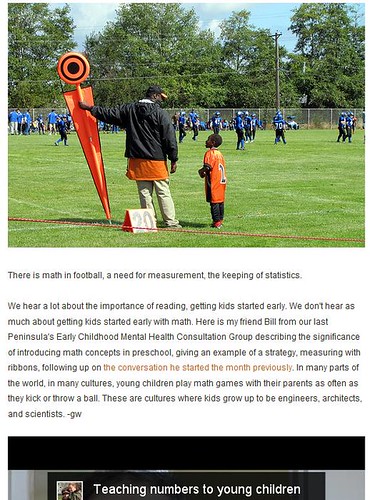Hi George and LaiWan,
To find the book nook- scroll down this page, on the right you will see the sun, click on www.vanderbilt.edu/csefel/ When that page comes up click on the apple for teachers and caregivers. When that page comes up you will see the Book Nook, click on that for the books. Thanks for a great two hours yesterday. I admire everyone's skill, knowledge, insight and intuition.
Happy weekend! Linda
This was the note Linda sent after our last meeting. Linda really likes the Book Nook on the CSEFEL site. -gw
These easy-to-use guides were created especially for teachers/caregivers and parents to provide hands-on ways to embed social emotional skill building activities into everyday routines. Each book nook is comprised of ideas and activities designed around popular children’s books such as Big Al, Hands are Not for Hitting, On Monday When it Rained and My Many Colored Days. Examples of suggested activities include using rhymes to talk about being friends, making emotion masks to help children identify and talk about different feelings, playing games around what to do with hands instead of hitting and fun music and movement activities to express emotions.




